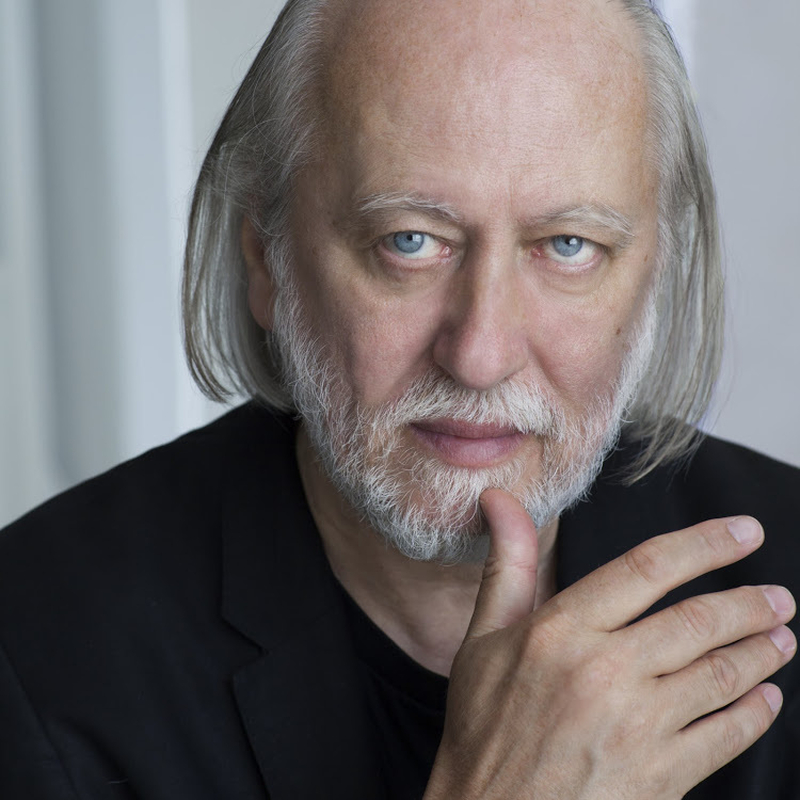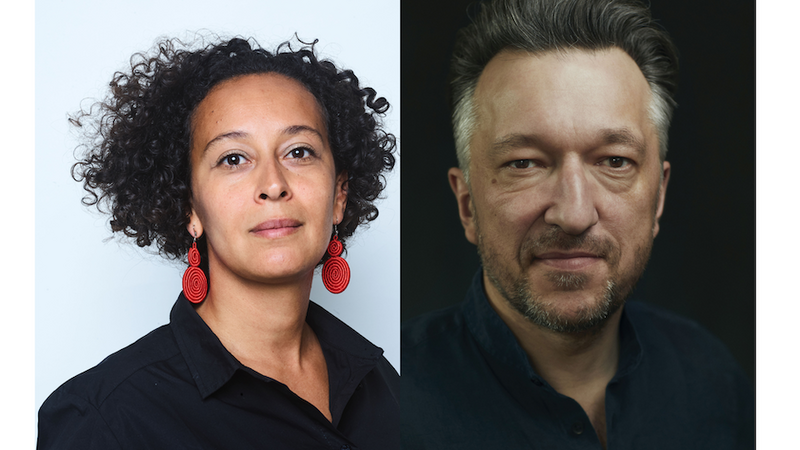Meet the author: László Krasznahorkai

Location
Category
Price
Language
Meet the author
The meetings with writers at Passa Porta, prepared with passion, courage and thoroughness, are more than simply the presentation of literary works. We seek to achieve a genuine connection between writer and reader, and among readers themselves.
Go to overviewA rumour is going around a small Hungarian town that Béla Wenckheim, a rich aristocrat, is returning from Argentina. More and more people are counting on him to bring back a ton of money and help the city flourish again. What follows, however, far exceeds expectations … With Baron Wenckheim’s Homecoming, International Booker Prize winner László Krasznahorkai delivers a funny, compelling and wondrous tale.
Dystopian vortex
Baron Wenckheim is indeed returning. But when he unexpectedly dies after a series of tragicomic misunderstandings, the disillusioned population revolts. A huge fire breaks out in the city. The only survivor is an idiot who has escaped from the asylum and sings on top of the water tower. With one powerfully visual scene after another, Krasznahorkai guides us through his story with as much irony as ever, but this time with a humour that is a lot more overt. The downfall draws you in with a grin.
From cult author to popular author
During the Passa Porta Festival 2015 we virtually saw it happen under our very noses: László Krasznahorkai’s metamorphosis from cult author to popular author. Before the event, we had heard the wildest rumours: that he was dead, that he had given up writing, that he had moved to China. Apparently we were dealing with an author who worked in remote isolation – in voluntary exile, it soon turned out too. He’d be there, but would the readers?
The literary gods were with us: in the days leading up to the festival, the jury of the prestigious International Booker Prize announced its shortlist, which included the English translation of László Krasznahorkai’s Satantango. The venue soon sold out. A few weeks later Krasznahorkai went on to win the prize. And the rest, as they say, is history: ‘the contemporary Hungarian master of the apocalypse who inspires comparison with Gogol and Melville’, in the words of Susan Sontag, is high on the list of every literary connoisseur.
László Krasznahorkai was born in 1954 in Gyula, a small town in Hungary, then a satellite state of the Soviet Union. He studied law and Hungarian literature. Krasznahorkai published his first novel, Satantango, in 1985. This was followed by The Melancholy of Resistance (1989) and War and War (1999), and now Baron Wenckheim’s Homecoming (2016). In addition to novels, Krasznahorkai has published several novels, essays and travel stories. His work has been translated, rewarded and filmed many times, including by Béla Tarr. Although he retains a house in Hungary, Krasznahorkai has lived in voluntary exile in Berlin for quite some time.
László Krasznahorkai will be interviewed by Marnix Verplancke, literary critic at De Morgen and Knack. Actor Koen De Sutter will bring a reading from the novel.
Passa Porta, Wereldbibliotheek
Photo © Nina Subin
Coming soon at

Meet the author: Sheena Patel
I’m A Fan, British writer and director Sheena Patel’s debut novel about obsession, social media and power relations, put her on the map as one of the most exciting new voices in British literature. She will be interviewed by Sudanese-Australian writer Yassmin Abdel-Magied, who will be working on her new novel as writer in residence at Passa Porta in Brussels.

Meet the author: Kathrin Röggla
Nobody writes stories like Kathrin Röggla. Strange, menacing, disruptive. She is one of the most important and most acclaimed German-language writers. With Nachtprogramma, her work is now also available in Dutch. Together with Prof. Inge Arteel, Kathrin Röggla will join us for a discussion with her translators and read from her short-story collection.

Trente ans après : Dialogue entre Beata Umubyeyi Mairesse et Lukas Bärfuss
A l’heure de commémorer le génocide des Tutsi, les écrivains Beata Umubyeyi Mairesse et Lukas Bärfuss reviennent sur les événements, et racontent comment ils sont parvenus, elle et lui, à en tisser un récit.
 Adam Thirlwell in the introduction to the Paris Review Interview with Krasznahorkai.
Adam Thirlwell in the introduction to the Paris Review Interview with Krasznahorkai.